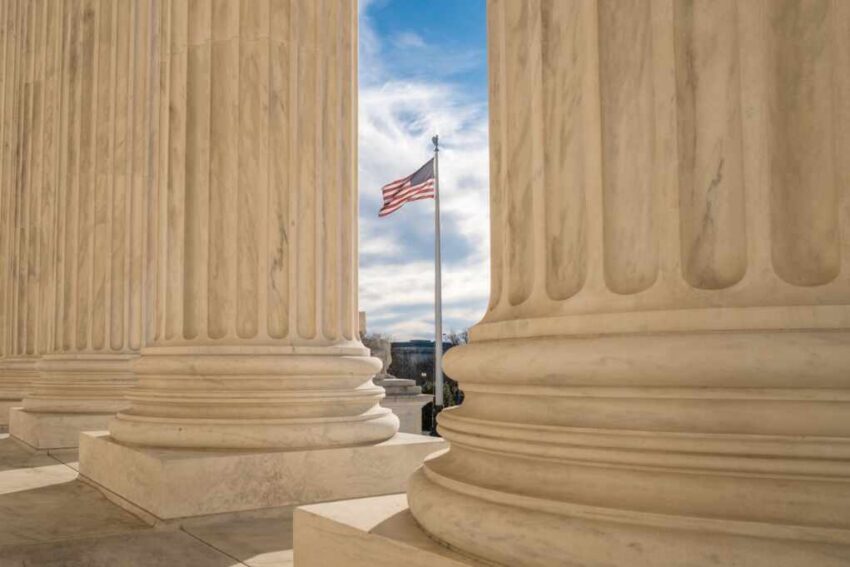The Supreme Court’s decision to uphold Tennessee’s ban on transgender medical procedures for minors marks a significant victory for states’ rights advocates, sparking intense debate across the nation.
Story Snapshot
- The Supreme Court upholds Tennessee’s SB1, banning gender-affirming care for minors.
- The 6-3 ruling allows similar bans to stand in other states.
- The decision emphasizes states’ rights over federal intervention.
- The medical community criticizes the ruling as harmful to transgender youth.
Supreme Court Decision and Its Implications
On June 18, 2025, the U.S. Supreme Court ruled 6–3 in favor of Tennessee’s law, SB1, which bans gender-affirming medical procedures for minors. This decision marks a pivotal legal and cultural turning point, emphasizing states’ rights to regulate such medical care without violating the Equal Protection Clause of the Fourteenth Amendment. The ruling, significant for its reliance on rational basis review, allows similar bans in other states to remain effective.
BREAKING: The Supreme Court just ruled to uphold Tennessee’s BAN on transgender surgeries, cross-sex hormones, and puberty blockers for minors in a 6-3 decision.
MASSIVE WIN!! pic.twitter.com/9Fev4NlVZW
— Libs of TikTok (@libsoftiktok) June 18, 2025
The ruling has sparked a nationwide debate over transgender rights, with Tennessee Attorney General Jonathan Skrmetti lauding it as a victory against radical gender ideology. In stark contrast, medical organizations, including the American Academy of Pediatrics, criticize the decision, arguing that it undermines best practices and could harm vulnerable youth. The clash highlights ongoing cultural tensions and differing views on medical ethics and children’s welfare.
Background and Context
The debate over gender-affirming care for minors has intensified since the early 2020s, with various states enacting bans reflecting broader political and cultural disputes. Tennessee’s SB1, signed into law by Governor Bill Lee in March 2023, became a focal point in this contentious issue. The law faced immediate legal challenges, leading to a landmark Supreme Court decision that underscored the growing divide between state legislative authority and federal constitutional protections.
This case unfolded during a time of national polarization over transgender rights, with the Biden administration initially opposing such bans and the Trump administration later supporting them. Previous court decisions often found these bans unconstitutional, applying heightened scrutiny. However, the Supreme Court’s decision applied rational basis review, highlighting a significant judicial shift.
Impacts and Future Challenges
The immediate enforcement of Tennessee’s law and similar bans in 25 states means transgender youth in these regions will lose access to gender-affirming care. Hospitals and providers face increased legal risks, while detransitioner lawsuits gain traction. The ruling may have long-term implications for medical providers, potentially discouraging research in transgender health due to increased liability and professional uncertainty.
Politically, the decision emboldens states to pass similar laws, intensifying federal-state tensions. Socially, the ruling fuels debate over gender identity, parental rights, and medical ethics. Economically, hospitals could face lawsuits and financial penalties, while insurers reassess coverage policies. The case underscores a broader cultural reckoning on gender ideology, consent, and medical authority, leaving open the possibility of future legal challenges as societal norms and standards evolve.
Sources:
Lambda Legal – United States v. Skrmetti FAQ
Wikipedia – United States v. Skrmetti
NAACP Legal Defense Fund – United States v. Skrmetti
KFF – Implications of the Skrmetti Ruling
The US Constitution – United States v. Skrmetti
Click this link for the original source of this article.
Author: Editor
This content is courtesy of, and owned and copyrighted by, https://conservativeamericatoday.com and its author. This content is made available by use of the public RSS feed offered by the host site and is used for educational purposes only. If you are the author or represent the host site and would like this content removed now and in the future, please contact USSANews.com using the email address in the Contact page found in the website menu.





